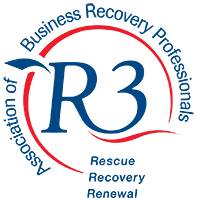What happens if my expenditure goes up during my IVA?
The amount you pay in monthly contributions to your IVA was worked out based on your affordability, but what if that affordability changes? What happens if your monthly expenditure goes up, making it harder for you to make your IVA payments?
In this guide we explore what happens if your outgoings increase during your IVA, including why your expenditure might increase, whether an increase can result in IVA failure, and what you should do if you experience an expenditure increase during your arrangement.
Is it common for expenditure to increase during an IVA?
An IVA typically lasts for five or six years, and can occasionally last even longer. You can expect a lot of things to change during a five-year period, and your financial circumstances are no different.
Your IVA proposal is put together based on your affordability, which is calculated by taking into account your income and expenditure, and basing your monthly contributions on how much disposable income you have left at the end of the month.
Most of the outgoings that are taken into consideration will be for fixed amounts of money, with expenses like your mortgage or rent payment, insurance, and household bills unlikely to change too much over that period.
That said, even fixed bills might be increased by your supplier, and other expenses – from the amount you spend on food, to the cost of filling up your car – can easily fluctuate over five or six years. That’s when your IVA agreement may have to be examined.
What happens if my outgoings increase during my IVA?
As previously stated, it’s likely your outgoings will increase in one way or another during the course of your IVA. That’s not a problem as long as those increases are highlighted and taken into account with regards to your arrangement.
Small increases in expenditure
Small increases in expenditure are to be expected during your arrangement. Inflation can lead to the price of goods increasing over five years, and if the price of goods increases, your cost of living will increase as well, making meeting your monthly contributions more challenging.
The annual review process should be able to take care of most of the smaller increases you experience. Every year of your IVA we will run through your arrangement with you, consider your income and expenditure, and make sure the arrangement is still fit for purpose.
If we discover during your annual review that an increase in your outgoings has resulted in you struggling to meet your monthly contributions, we may decide to adjust those contributions going forward.
Major increases in expenditure
We understand that unexpected expenses crop up from time to time, and something might happen during your IVA term that qualifies as a financial emergency.
If your boiler breaks down, or your work van needs a new exhaust, you may find expenditure shoots up rapidly, and begin to worry you will no longer be able to make your next IVA contribution.
If that happens, it’s important you get in touch with us immediately. If it’s a one-off expense like a boiler breakdown, we may be able to give you an IVA payment break which would allow you to defer monthly contributions until the one-off expense is paid.
If you experience a major increase in your expenditure that becomes a recurring issue, i.e. a big increase on your rent or mortgage payment, then we may need to explore whether your arrangement needs to be adapted.
Can an increase in expenditure result in an IVA failing?
There are some cases where a major increase in your expenditure, or a severe cut in your income, makes keeping up with a monthly IVA payment completely unsustainable.
If you continually fail to make your IVA payments, your IVA will eventually fail. When your IVA fails the arrangement will end, meaning you won’t have to continue making payments.
That said, the money you originally owed still stands. Your creditors will be owed the remaining balance of the debts included in the IVA, and it’s your responsibility to arrange further payments towards your total debts if you want to avoid bankruptcy.
If you are unable to come to an arrangement with your creditors, they may find you in breach of your legally-binding agreement and apply to have you made bankrupt in order to recover some of the money you owe.
What should I do if my expenditure increases during my IVA?
While there are any number of reasons why your expenditure might increase during your IVA, there’s only one course of action you need to take if it happens to you: Get in touch with us.
The sooner we know that you’re struggling to meet your financial commitments, the sooner we can take action and find a solution that suits everyone, whether that’s offering you an IVA payment break or adapting your arrangement to fit your circumstances.


